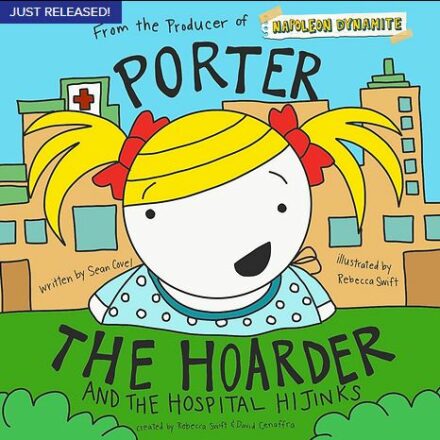
Human Subjects Research Determination
The Monument Health Institutional Review Board (MH IRB) can provide an official Human Subjects Research Determination (HSRD) after a thorough review of the research project documentation. A HSRD is an analysis process where a research project is either classified as: A) human subjects research which requires an IRB review and approval; or B) not human subjects research which does not require an IRB review and approval.
All human subjects research conducted at any Monument Health facility requires the Principal Investigator (PI) to submit all documents through to the MH IRB. The RH IRB has a computer solution which houses all the human subjects research studies conducted or have been conducted at Monument Health.
What should be submitted to the RH IRB for a HSRD?
A Human Subjects Research Determination Form (DOCX) with pertinent documentation.
OR
A detailed description of the research. This includes, but is not limited to:
- A study protocol or project summary
- Informed consent documents
- Patient materials
- Survey tools and/or questionnaire(s); and
- Any other pertinent documentation for the research
If there are any questions as to what to submit, contacting the MH IRB Office for a “Is My Project Human Subjects Research?” form or an Initial Review submission application form.
Contacting the Monument Health IRB Office
The Monument Health IRB office is located at Monument Health Center, 2959 Regional Way, Rapid City, South Dakota. You can contact the Monument Health IRB Office by calling 605-755-9037 or 1-877-861-4865. The Monument Health IRB Office e-mail address is mhirb@monument.health.
Downloads
- Protocol Guidance (PDF)
- Informed Consent Guidance (PDF)
- Implied Consent Guidance (PDF)
- Human Subjects Determination (DOCX)
Policy
Helpful Links
Association for the Accreditation of Human Research Protection Program, Inc. (AAHRP): http://www.aahrpp.org
Food and Drug Administration: https://www.fda.gov
Office for Human Research Protections (OHRP): https://www.hhs.gov/ohrp/
OHRP Educational Videos: https://www.hhs.gov/ohrp/education-and-outreach/online-education/videos/index.html
OHRP YouTube Videos: https://www.youtube.com/playlist?list=PLrl7E8KABz1GHNZXkTGWGCJvLQ2KRLiXO
Collaborative Institutional Training Initiative (CITI): https://about.citiprogram.org/
National Institutes of Health (NIH): https://crt.nihtraining.com/
Guiding Principles
Codes and Policies for Research Ethics
Given the importance of ethics for the conduct of research, it should be no surprise that many different professional associations, government agencies, and universities have adopted specific codes, rules, and policies relating to research ethics.
Many government agencies, such as the NATIONAL INSTITUTES OF HEALTH (NIH), the NATIONAL SCIENCE FOUNDATION (NSF), the FOOD AND DRUG ADMINISTRATION (FDA), the ENVIRONMENTAL PROTECTION AGENCY (EPA), and the US DEPARTMENT OF AGRICULTURE (USDA) have ethics rules for funded researchers.
Other influential research ethics policies include the AMERICAN CHEMICAL SOCIETY, THE CHEMIST PROFESSIONAL’S CODE OF CONDUCT, CODE OF ETHICS (AMERICAN SOCIETY FOR CLINICAL LABORATORY SCIENCE) AMERICAN PSYCHOLOGICAL ASSOCIATION, ETHICAL PRINCIPLES OF PSYCHOLOGISTS AND CODE OF CONDUCT, STATEMENTS ON ETHICS AND PROFESSIONAL RESPONSIBILITY (AMERICAN ANTHROPOLOGICAL ASSOCIATION), STATEMENT ON PROFESSIONAL ETHICS (AMERICAN ASSOCIATION OF UNIVERSITY PROFESSORS), The BELMONT REPORT, the NUREMBERG CODE and the WORLD MEDICAL ASSOCIATION’S DECLARATION OF HELSINKI.
The following is a rough and general summary of some ethical principles that various codes address:
Honesty
Strive for honesty in all scientific communications. Honestly report data, results, methods and procedures, and publication status. Do not fabricate, falsify, or misrepresent data. Do not deceive colleagues, research sponsors or the public.
Objectivity
Strive to avoid bias in experimental design, data analysis, data interpretation, peer review, personnel decisions, grant writing, expert testimony, and other aspects of research where objectivity is expected or required. Avoid or minimize bias or self-deception. Disclose personal or financial interests that may affect research.
Integrity
Keep your promises and agreements; act with sincerity; strive for consistency of thought and action.
Carefulness
Avoid careless errors and negligence; carefully and critically examine your own work and the work of your peers. Keep good records of research activities, such as data collection, research design, and correspondence with agencies or journals.
Openness
Share data, results, ideas, tools and resources. Be open to criticism and new ideas.
Respect for Intellectual Property
Honor patents, copyrights, and other forms of intellectual property. Do not use unpublished data, methods or results without permission. Give proper acknowledgement or credit for all contributions to research. Never plagiarize.
Confidentiality
Protect confidential communications such as papers or grants submitted for publication, personnel records, trade or military secrets and patient records.
Responsible Publication
Publish in order to advance research and scholarship, not to advance just your own career. Avoid wasteful and duplicative publication.
Responsible Mentoring
Help to educate, mentor, and advise students. Promote their welfare and allow them to make their own decisions.
Respect for Colleagues
Respect your colleagues and treat them fairly.
Social Responsibility
Strive to promote social good and prevent or mitigate social harms through research, public education, and advocacy.
Non-Discrimination
Avoid discrimination against colleagues or students on the basis of sex, race, ethnicity, or other factors not related to scientific competence and integrity.
Competence
Maintain and improve your own professional competence and expertise through lifelong education and learning; take steps to promote competence in science as a whole.
Legality
Know and obey relevant laws and institutional and governmental policies.
Human Subjects Protection
When conducting research on human subjects, minimize harms and risks and maximize benefits; respect human dignity, privacy, and autonomy; take special precautions with vulnerable populations; and strive to distribute the benefits and burdens of research fairly.
Research Participants Bill of Rights
It is important that the purpose and procedures of the research study are fully understood and that consent is offered willingly. A subject in a research study, or someone who is asked to give consent on behalf of another person for such participation, has the right to:
- Be informed of the nature and purpose of the research.
- Be given an explanation of all procedures to be followed and of any drug or device that will be used.
- Be given a description of any risks or discomforts that can be associated with the research study.
- Be given an explanation of any benefits, which can be associated with the research study.
- Be informed of any risks and benefits of the appropriate alternative procedures, drugs, or devices in the research study.
- Be informed of any medical treatment, which will be made available to the participant, if complications should arise from the research study.
- Be given an opportunity and encouraged to ask questions concerning the research study or procedures involved.
- Be made aware that participants can quit the research study at any time.
- Be given a copy of the signed and dated written consent form, if requested.
- Not be subjected to an element of force, fraud, deceit, duress, coercion, or any influences in reaching the decision to consent or to not consent to participate in the research.
If you have questions regarding your rights as a research subject, you may contact the Monument Health IRB office at 605-755-9037 or 1-877-861-4865. To discuss problems, concerns, questions, offer information, or provide suggestions or input to someone who is not involved with the research study, you may call Customer Service and Patient Relations at 605-755-8134.
Before a Principal Investigator (PI) can submit a protocol for RH IRB Review and Approval the PI must have demonstrated and submitted documentation of human subjects research (HSR) training. The Collaborative Institutional Training Initiative (CITI) or National Institutes of Health (NIH) are recommended organizations where to obtain the proper training. If the PI does not have HSR training contact the MH IRB Office for the sign-on information for CITI Training.
The Health Insurance Portability and Accountability Act (HIPAA) recognizes that health-related information is often so rich in content that it can never be made truly anonymous, but that the risk of re-identification of an individual is greatly decreased by removing certain elements from data. Health information lacking these elements is said to be de-identified and may be used or disclosed without restriction under the HIPAA Privacy Rule (the health information is no longer protected health information (PHI)).
To de-identify PHI, remove the following list of 18 identifiers of the individual and of the individual’s relatives, employers, or household members:
- Names
- All geographic subdivisions smaller than state
- All elements of dates except year – e.g. date of birth, date of death, admission date, discharge date, all ages over age 89.
- Telephone numbers
- Fax numbers
- E-mail addresses
- Social security numbers
- Medical Record numbers
- Health plan beneficiary numbers
- Account numbers
- Certificate/license numbers
- Vehicle identification, serial, or license plate numbers
- Device identifiers and serial numbers
- Web Universal Resources (URLs)
- Internet Protocol (IP) address numbers
- Biometric identifiers, including finger and voice prints
- Full face photographic images any comparable images
- All other unique identifying numbers, characteristic, or code
HIPAA allows for the use of a Limited Data Set for Research and Public Health
A “limited data set” is a limited set of identifiable patient information as defined in the Privacy Regulations issued under the Health Insurance Portability and Accountability Act”. A “limited data set” of information may be disclosed to an outside party without a patient’s authorization if certain conditions are met.
- First, the purpose of the disclosure may only be for research, public health or health care operations.
- Second, the person receiving the information must sign a Data Use Agreement (DUA).
DUAs are contractual documents used for the transfer of nonpublic data that is subject to some restriction on its use. DUAs serve to outline the terms and conditions of the transfer. Specifically, DUAs address important issues such as limitations on use of the data, obligations to safeguard the data, liability for harm arising from the use of the data, publication, and privacy rights that are associated with transfers of confidential or protected data. The understanding established by a DUA can help avoid later issues by clearly setting forth the expectations of the parties (provider and recipient). Having a signed DUA in place may be a required precondition to transfers of certain data, or it may simply be a good idea. Determining whether a DUA is required is necessarily context dependent. When a DUA is required, it must be study specific – i.e. data cannot be transferred pursuant to “master” or blanket sharing agreements.
The agreement needs to be reviewed and approved by the Monument Health Legal Department through the normal contract control process.
Contact Us
PO Box 6000
Rapid City SD 57709-6000
Email: rhirb@monument.health


